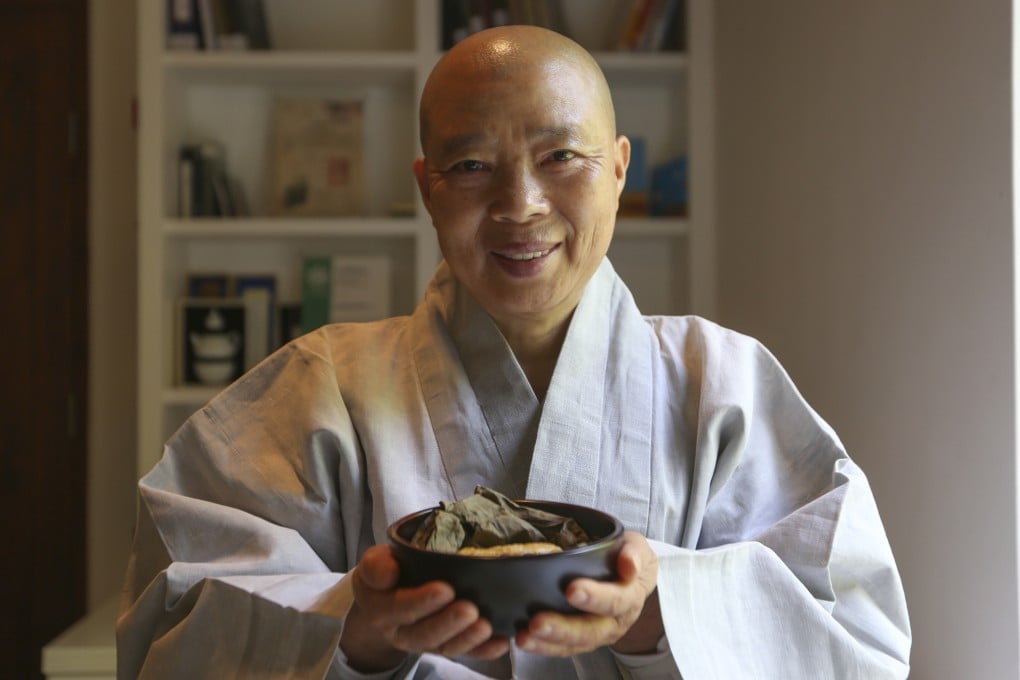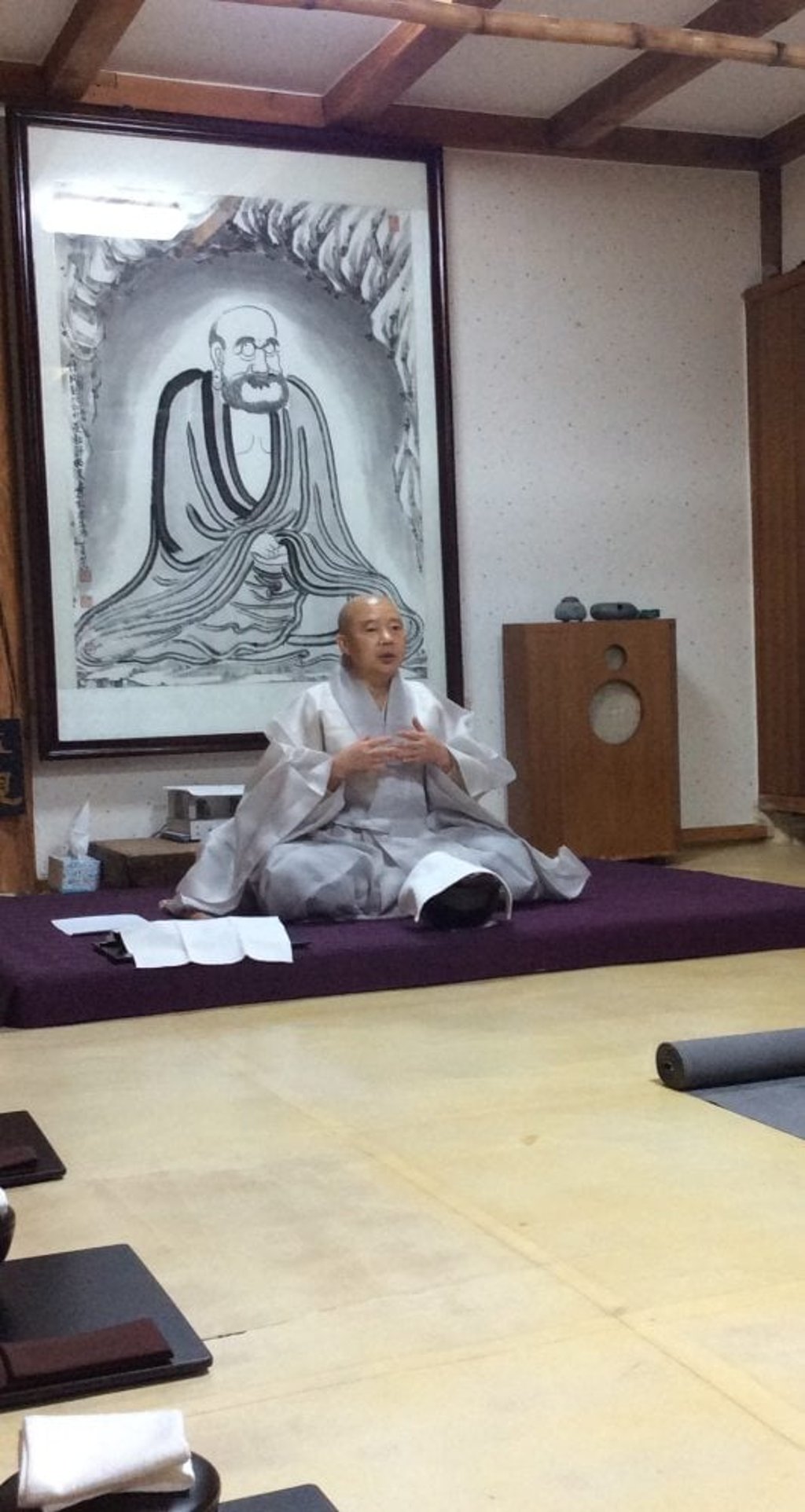Korean temple food and how to make it – Netflix star and Buddhist nun Jeong Kwan celebrates its healing powers
- In her vegetarian cookbook Baru, Jeong Kwan says food has a deeper purpose that can enrich the body and mind
- Her recipes include bibimbap for Buddha’s Birthday, cold lettuce soup, and rice with tofu, burdock and shiitake mushrooms

The venerable Jeong Kwan is probably one of the most recognisable seunims (Korean Buddhist monks or nuns) in popular culture. She came to the notice of television viewers when she appeared in a beautifully filmed episode in season three of Netflix show Chef’s Table, which saw her preparing Buddhist vegetarian food in the idyllic setting of the Chunjinam Hermitage of Baekyangsa Temple, in South Korea.
Her cookbook, Baru (2019) – the name refers to the wooden bowl from which monks eat – is worth seeking out, although it won’t be easy; if you have friends in South Korea, they might have a better chance.
“Kitchen work requires attention and the careful handling of all ingredients and tools; otherwise it can be a dangerous place. I was a young novice, with little to no knowledge about cooking, but with great curiosity and energy. As can be imagined, I was quite a handful for the more experienced practitioners working with me. However, even though very young, I did not always accept everything that my teacher told me with a grateful heart; it has taken time to realise that her teachings were those of Buddha, exemplifying the best Dharma: compassion for all beings.

“Since those early years, I have also learned the preciousness of sharing meals together with people, and with all beings. In fact, the temple kitchen was and continues to be a classroom that teaches me how to appreciate everything: the world and all beings in the universe.